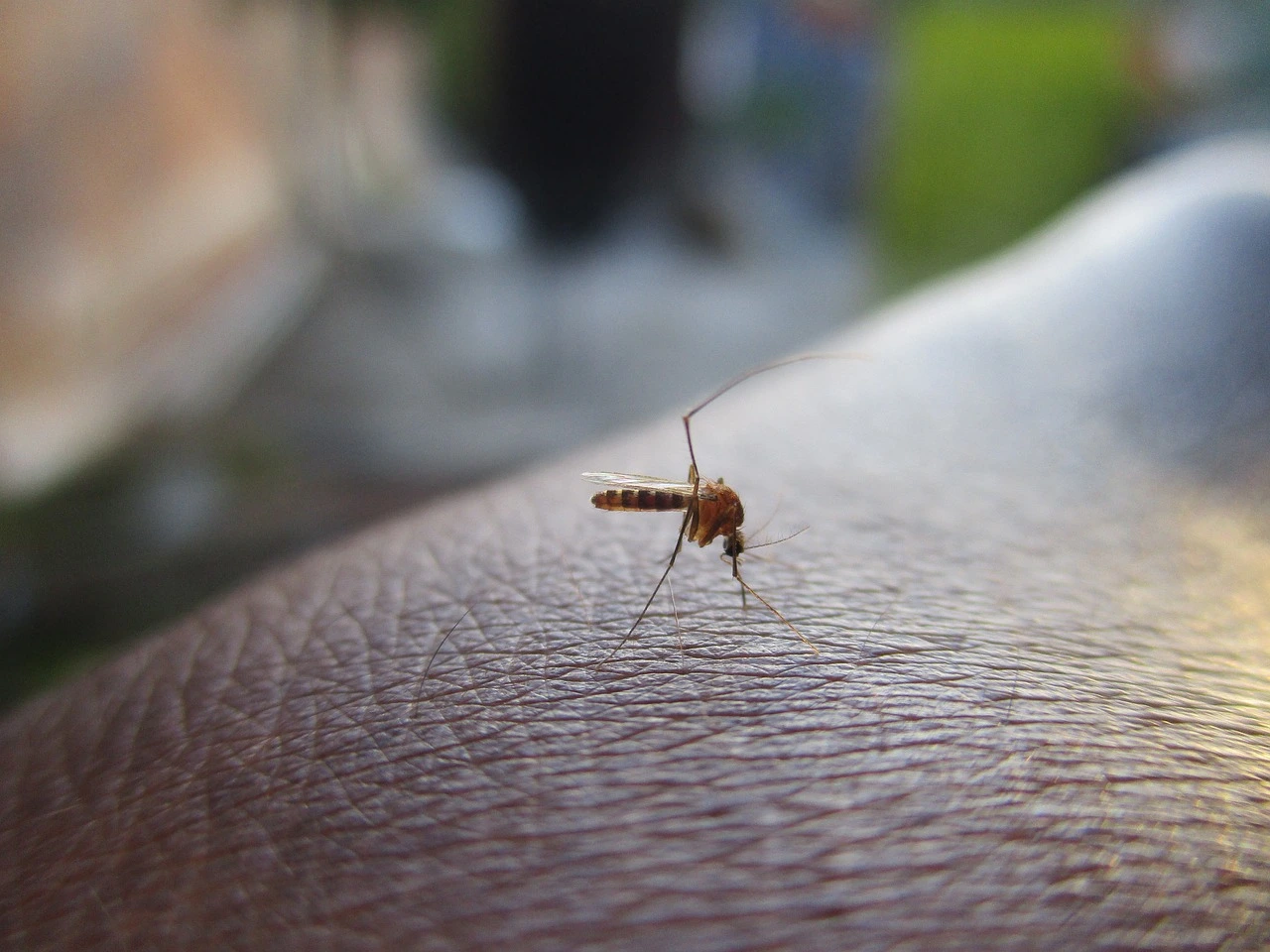Introduction
When it comes to enjoying the great outdoors, the threat of pesky mosquitoes and other insects can quickly turn a pleasant experience into an itchy ordeal. As we venture into nature, the question arises: should we rely on mosquito nets or insect repellents for protection? In this article, we’ll delve into the pros and cons of both options, helping you make an informed decision for your bug-free adventures.
Table of Contents
Understanding the Need for Protection
Before we dive into the debate between mosquito nets and insect repellents, let’s acknowledge the importance of protecting ourselves from mosquito bites and insect-related discomfort. These pests not only cause itching and irritation but can also transmit diseases like malaria, dengue, and Zika virus.
The Effectiveness of Mosquito Nets
Physical Barrier Defense
Mosquito nets offer a reliable physical barrier between you and the insects. These nets, usually made of fine mesh, create a protective shield that prevents mosquitoes from coming into direct contact with your skin. This reduces the risk of bites significantly, especially during sleep.
Variety of Options
From classic bed nets that hang from the ceiling to modern pop-up tents for outdoor use, mosquito nets come in a variety of options to suit different scenarios. Whether you’re camping in the wilderness or sleeping in a hotel room, there’s a mosquito net tailored to your needs.
The Power of Insect Repellents
Portable Protection
Insect repellents provide a portable and convenient way to fend off mosquitoes. A simple application of repellent on exposed skin can create an invisible shield, deterring insects from landing and biting.
Chemical vs. Natural Repellents
Insect repellents come in two main categories: those containing chemicals such as DEET, and those using natural ingredients like citronella and eucalyptus oil. While chemical repellents often offer longer-lasting protection, natural options appeal to individuals looking for eco-friendly alternatives.
Comparing Convenience
Setting Up and Carrying
Setting up a mosquito net requires a bit of preparation and space. On the other hand, carrying a small bottle of insect repellent in your bag is incredibly convenient. This makes repellents an excellent choice for impromptu outdoor activities.
Application and Reapplication
Applying mosquito repellent is as simple as spraying or rubbing it onto your skin. However, it’s important to note that repellents usually need reapplication every few hours for consistent protection. This aspect requires ongoing attention compared to nets that remain effective throughout the night.

Image by Leopictures from Pixabay
Environmental Considerations
Eco-Friendliness of Nets
Mosquito nets have minimal impact on the environment, as they are typically made from lightweight materials that can be reused for a long time. Their production and disposal have a relatively low ecological footprint.
Impact of Repellent Chemicals
Conversely, the production and disposal of insect repellents involve chemicals that can contribute to pollution. Moreover, the application of repellents can introduce these chemicals into ecosystems, raising concerns about their impact on wildlife and water sources.
Coverage and Usability
Individual vs. Group Protection
Mosquito nets are often designed to provide protection for an individual or a small group of people. This makes them suitable for personal sleeping spaces. In contrast, repellents offer more flexibility, protecting larger groups during outdoor activities.
Sleeping vs. Active Hours
Nets are particularly effective during sleep, offering uninterrupted protection throughout the night. Repellents, while effective, might require more frequent application if you’re active for extended periods.
Personal Comfort and Preference
Sleeping Conditions and Allergies
For those who prioritize uninterrupted sleep, mosquito nets are a clear winner. However, individuals with allergies or sensitivities to the materials used in nets might find repellents to be a more comfortable option.
Scent and Texture Preferences
Repellents can have distinct scents and textures, which may not be appealing to everyone. Some people prefer the absence of any lingering odor, making mosquito nets a suitable choice.
Mitigating Health Risks
Avoiding Insect-Borne Diseases
Both mosquito nets and repellents play a crucial role in safeguarding against insect-borne diseases. Nets provide an added layer of security by preventing physical contact, while repellents actively deter insects from landing on your skin.
Avoiding Repellent Overexposure
While repellents are generally safe, overexposure to their active ingredients can lead to skin irritation or allergic reactions. Following usage instructions and using repellents with appropriate concentrations is vital to minimize these risks.
Cost-Effectiveness and Longevity
Initial Investment of Nets
Investing in a high-quality mosquito net might have a higher upfront cost, but it can provide long-term protection without additional expenses. This makes nets cost-effective over time, especially for frequent travelers or outdoor enthusiasts.
Frequency of Repellent Purchase
Insect repellents are more budget-friendly initially, but the ongoing need for purchasing new bottles can accumulate over time. However, their affordability can make them a practical choice for occasional outdoor activities.
Combination Strategies
Using Nets and Repellents Together
Maximize your protection by combining mosquito nets with insect repellents. This layered approach provides comprehensive defense, especially in areas with high insect activity or disease prevalence.
Optimal Usage Scenarios
Consider the specific circumstances of your outdoor activities when deciding between nets and repellents. Nets are ideal for stationary situations like camping or sleeping, while repellents are better suited for hiking, picnics, and other on-the-go scenarios.
Innovation and Technological Advancements
Smart Nets and Repellent Devices
Innovations in technology have led to the development of smart mosquito nets and wearable repellent devices. These devices use ultrasonic waves or electronic repellent emissions to enhance protection, catering to those who embrace modern solutions.
Effectiveness and Practicality
While these advancements show promise, it’s essential to evaluate their effectiveness and practicality in real-world conditions. Field tests and expert reviews can help you determine whether these high-tech options are worth the investment.
Expert Recommendations
Guidance from Health Authorities
Health organizations often provide recommendations for protecting against insect bites and related diseases. Consulting official guidelines can offer valuable insights into the effectiveness of nets and repellents in different regions.
Travel and Outdoor Experts’ Advice
Experienced travelers and outdoor enthusiasts can provide firsthand accounts of their preferred protection methods. Their advice can help you make an informed decision based on practical experiences.
Considering the Destination
Different Geographical Challenges
Protection needs vary based on your travel destination. Areas with high disease prevalence might require more comprehensive protection, making a combination of nets and repellents the optimal choice.
Adapting Protection Strategies
Adapt your protection strategy based on the environment you’ll be in. In densely forested areas, where mosquitoes are abundant, prioritize using both nets and repellents. In less insect-prone regions, a single method might suffice.
Final Decision: Nets or Repellents?
Weighing the Factors
The decision between mosquito nets and insect repellents ultimately depends on a combination of factors. Consider the level of insect activity, disease prevalence, your personal comfort, and the nature of your outdoor activities.
Personalized Protection
There’s no one-size-fits-all answer to this debate. The best approach might involve using mosquito nets for nighttime protection and repellents for daytime adventures. By tailoring your protection strategy, you can enjoy your outdoor experiences to the fullest.
Conclusion
As you embark on your outdoor escapades, the battle against mosquitoes and insects remains a key consideration. Mosquito nets and insect repellents each offer distinct advantages, and the choice boils down to your preferences, needs, and circumstances. Whether you opt for the physical barrier of a mosquito net or the portable shield of repellents, taking proactive steps to protect yourself ensures that your adventures are memorable for all the right reasons.
FAQs
- Can I use mosquito nets and repellents together? Absolutely! Combining both methods provides enhanced protection, especially in areas with high insect activity.
- Are natural repellents as effective as chemical ones? While natural repellents can offer protection, chemical repellents tend to provide longer-lasting coverage.
- Do mosquito nets work against all insects? Mosquito nets primarily target mosquitoes, but they can also provide some defense against other flying insects.
- How often should I reapply insect repellent? Repellents usually require reapplication every few hours for consistent and effective protection.
- Can I rely solely on insect repellents during sleep? While repellents can provide protection, mosquito nets are more reliable for undisturbed sleep without constant reapplication.

